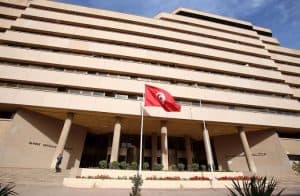Join Our Telegram channel to stay up to date on breaking news coverage
For the better part of two years now, there have been several discussions about the prospect of countries and governments making a move into the cryptocurrency space, with several analyses looking into how and why national cryptocurrencies would make sense for several countries.
Now, it would seem that Tunisia is getting ready to embrace the digitization of its currency. According to a November 7 report from Russian news source TASS, the North African country has become the first country to start processing a national, blockchain-backed currency, as it has begun the process of digitizing the paper-based Dinar.
As the medium notes, the Central Bank Digital Currency, which will be called the e-dinar, will be issued and managed by Universa, a Russian ICO startup that provides end-to-end digitalization services. In addition to management and issuance, Universa will also get a cut of each transaction carried out on the platform, while transaction details will be monitored by the Central Bank of Tunisia.
The E-dinar is not a Cryptocurrency
The TASS report was quick to point out that the e-dinar will not be a cryptocurrency, adding that other digital assets like Bitcoin and its counterpart are not entirely legitimate currencies because they were- and are- not regulated by Central Banks. Elvira Nabiullina, the head of the Central Bank of Russia, told the news medium that the financial regulator supports the “development of financial technologies,” and not private money.
The e-dinar is expected to be state-owned, and it will also be backed by paper money. The Universa Blockchain will help with issuance and distribution, while also ensuring that it is protected from counterfeiting.
E-dinar is Proposed to be Cheaper to Issue
On the benefits that the Universa Blockchain will bring to it, Alexander Borodich, the founder and chief executive of Universa, said, “Electronic banknotes cannot be faked – each such banknote, like the paper version, is protected by cryptography, it, like the paper counterpart, has its own digital watermarks. And the production of such a banknote is 100 times cheaper than wasting ink, paper, electricity for the printing press.”
The currency will not be issued to Tunisians, but they will be allowed to exchange their fiat currency for e-dinars if they please.
TASS also noted that several other countries could join in on this revolution. Per the medium, financial representatives from Morocco, Mauritania, and Algeria were part of a presentation on the e-dinar that took place in Tunis. However, while there is a growing interest in CBDCs, the countries will be keeping tabs on the e-dinar to see how it performs before they take the plunge as well
Hopefully, success with the e-dinar will help spur more countries to consider digitizing their currencies. There is undoubtedly much interest, as many believe that digitization could help connect more countries by, amongst other things, providing more effective cross-border asset transfers.
As previously reported, policymakers across the European Union had grown increasingly attracted to the prospect of developing the Eurocoin, an asset which will speed up money transfers across the economic bloc.
Per the report, a draft prepared by the Finnish EU presidency as called for the European Central Bank to adopt a digital currency, which would help member countries take a common approach to the blockchain space in general.
Join Our Telegram channel to stay up to date on breaking news coverage


